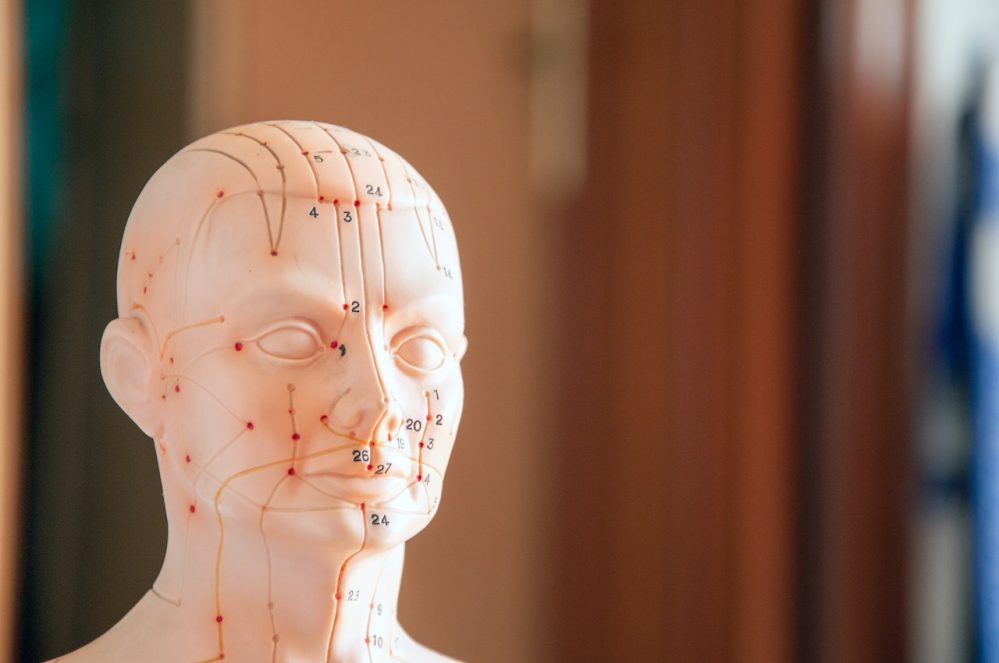Did you know that as of July 2023, acupuncturists in the United States earn an impressive average annual salary of $172.000? That’s almost three times the national average wage for all occupations! This remarkable earning potential has undoubtedly caught the attention of many individuals, inspiring them to pursue a career in this time-honored healing practice. However, it is crucial to understand the necessary prerequisites and educational journey before immersing oneself in the world of acupuncture.
Throughout this article, we will discuss the essential acupuncture schooling requirements, outlining the critical steps needed to enter this noble profession and make a positive impact on the well-being of others.
What Is Acupuncture?
Acupuncture is an ancient Chinese practice used to stimulate specific points in the body. While there are various methods, the most well-known type in the United States involves inserting thin metal needles through the skin. By regulating the flow of Qi, the body’s vital energy, acupuncture effectively addresses pain, stress, sleep problems, and various health concerns.
While scientifically proven effective for certain conditions, acupuncture is best used as a supplementary therapy alongside conventional medical treatments guided by licensed practitioners. This traditional treatment focuses on target points on the back, neck, head, and face, aiming to alleviate specific health conditions or symptoms, thus making it a valuable addition to comprehensive healthcare solutions.
What does an acupuncturist do?
Acupuncturists use traditional Chinese medicine to enhance patients’ overall well-being by providing various acupuncture treatments. Some of their day-to-day responsibilities include:
— Assessing patients’ health and medical histories
— Selecting suitable acupuncture points based on the diagnosis
— Stimulating acupuncture points with thin needles
— Using additional techniques like cupping, herbal therapy, transcutaneous electrical nerve stimulation, or moxibustion when needed
— Offering guidance on lifestyle changes, exercise, and nutrition for overall well-being
Acupuncture Schooling Requirements
Pursuing the appropriate acupuncture schooling is of utmost importance when embarking on the journey to become an acupuncturist in the United States. Acquiring a master’s degree in acupuncture or Chinese medicine is the standard educational qualification. Therefore, to begin this educational path, you must first obtain a bachelor’s degree in a relevant field, such as biology or anatomy, and then explore everything further during your master’s studies focused on acupuncture.
An alternative option, when offered by the school of your choosing, is to directly pursue a dual bachelor’s and master’s degree program, which combines the two degrees into a single integrated curriculum, thus allowing you to earn both degrees in a more streamlined and efficient manner.
Before you start practicing as an acupuncturist, you must gain licensure to guarantee that you meet specific standards of education and competency. To acquire the license, you must pass the necessary examinations administered by the National Certification Commission for Acupuncture and Oriental Medicine (NCCAOM). These exams usually include assessments in acupuncture techniques, foundations of oriental medicine, and biomedicine. Some states may also require additional examinations, such as Chinese Herbology, for practitioners who intend to incorporate herbal medicine into their practice.
Later on, when seeking an advanced level of expertise, you can further your education by pursuing a doctorate in acupuncture. This step can open up opportunities for leadership positions within the acupuncture profession and involvement in policy development and advocacy.
What Courses Do You Need to Take?
Acupuncturist schooling typically encompasses a comprehensive set of courses designed to equip aspiring practitioners with the necessary knowledge and skills for this field. These courses may vary between programs; however, some common ones include:
— Acupuncture and Basic Theory
— Anatomy and Physiology
— Pathophysiology
— Point Location and Channel Theory
— Herbal Medicine
— Clinical Practice
— Ethics and Professionalism
— Practice Management
How Long Does It Take To Become an Acupuncturist?
The time it takes to become an acupuncturist can vary depending on the duration of the acupuncture program you follow and the time it takes to obtain an acupuncture license. In some acupuncture schools, the master’s program may span up to three years or more, involving a comprehensive curriculum that covers theoretical studies, practical training, and clinical experience.
However, at the American Institute of Alternative Medicine (AIAM), you can complete your degree in acupuncture within a shorter time frame of 27 months. AIAM’s acupuncture program allows you to immerse yourself in an intensive and focused learning experience, equipping you with the essential knowledge and skills needed to become a licensed acupuncturist.
After that, the time it takes to prepare for and pass the examinations for licensure can vary from several months to a year, depending on your study pace.
Factors to Consider Before Choosing an Acupuncture Program
Now that you know the importance of acupuncture schooling requirements when becoming a professional in the field of acupuncture, it is also essential to know what to consider before you commit to any school. Below, we’ll go through some key factors that you should keep in mind before choosing a program:
— Program Length: Consider the time needed to complete your studies in order to align your educational goals and commitments with the duration of the acupuncture program.
— Accreditation: Ensure that the program you choose is accredited and recognized by a relevant accreditation agency, as this will guarantee that the program meets the necessary educational standards to prepare you for a career as an acupuncturist.
— Curriculum and Clinical Hours: Look for a program with a comprehensive curriculum that covers both theory and practical training.
— Tuition and Financial Aid: Think about the overall cost of the program, including the tuition fees, books, and supplies. If needed, look for potential financial aid options provided by the school, federal grants, or private loans.
— Location: Research where the school campus is and decide whether you want to study close to home or are open to relocating for the program. Additionally, you can look for online or hybrid programs that may require you to visit campus only for hands-on experience.
— Graduation and NCCAOM exam pass rate: Look for programs with a strong track record of producing skilled and successful acupuncturists. High graduation and NCCAOM exam pass rates directly indicate the school’s competency in supporting students throughout their acupuncture journey.
Bottom Line
To sum up, becoming an acupuncturist in the United States can be a rewarding career path, but it’s crucial to consider all the acupuncture schooling requirements you must fulfill in order to succeed in this field, such as having a master’s degree and being licensed. There are also certain factors you must keep in mind before selecting an acupuncture program. These factors include program duration, accreditation, curriculum, clinical experience, tuition, and location. By considering these aspects and making informed decisions about your education, you can ensure that you receive a comprehensive education and training that will prepare you for licensure and success in this time-honored field.
So, if you’re passionate about promoting wellness and harmony in the lives of individuals, don’t hesitate any longer! Start your path towards becoming a licensed acupuncturist and making a significant impact in the world of healthcare.

